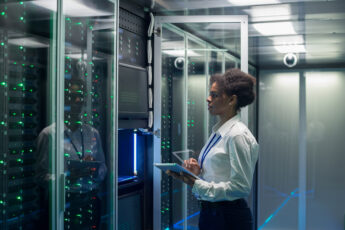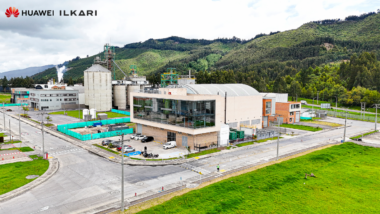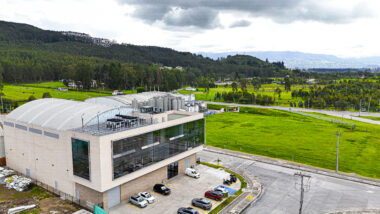Six changes data centres can make for the future

Isaac Asimov said that any technological advance could be dangerous. “Fire was dangerous from the start, and so (even more so) was speech – and both are still dangerous to this day – but human beings would not be human without them.”
Technology has evolved significantly since the first modern data centre emerged on the scene in early 2000. This is true both from a speed and storage standpoint, with less space required to store more data but access that data at faster speeds.
Companies are inundated with digital infrastructure challenges, from operational, data and technical sovereignty to global compliance, cybersecurity, and sustainability issues related to their operations’ carbon footprint on the world.
One of the earliest examples of data sovereignty was in the early 2000s when IT directors thought keeping the data in-house despite operational and security risks was safer. Typical data backups involved someone copying the data onto a disk and then leaving it in the same office or taking the disk home. IT Directors finally caved in and moved their data from the office into a custom-built, secure, dedicated environment–the data centre.
Here are six changes data centres need to make to keep evolving as the pace of change accelerates:
- Regulatory compliance and sustainability standards. The main driver for data centre use and power increase is the use of machine learning and artificial intelligence, so there is a pressing need for the continued development and adoption of international energy efficiency and sustainability standards in data centres.
- Innovative storage solutions such as high-density storage: Using high-density storage solutions like NVMe and advanced solid-state allows more data to be stored in the same physical space and uses less power, which is more efficient. It also provides flexibility and allows customers with compatible systems to work with current cloud and hybrid systems.
- Data reduction use: Each concert or football match generates thousands of photos and social media posts, each of which is backed up multiple times and stored as normal archiving—big data at its finest. Implementing data deduplication, compression, and other data reduction technologies will significantly maximise storage capacity.
- Research and Development: Continued investment in research and development to explore new technologies and methodologies to improve data centre operations will benefit the entire ecosystem and improve efficiencies.
- Increased use of alternative and sustainable power supplies. Data centres are impacting power availability for standard power users, and there is not enough power to go around. Alternative power, such as solar power, does not take power from the grid and is a sustainable power source. Using technology and alternative and sustainable energy sources helps reduce the overall carbon footprint and ensure minimum waste. power supplies.
- Coordinated CSR policy and targets. Data Centres and associated technologies are at the cutting edge of modern technologies. Through a CSR policy, each data centre could significantly impact the local community and improve welfare, education and general support. Ilkari supports local communities through initiatives such as apprenticeships and internships, and local schools and provides websites to local start-ups for their growth and success. Ilkari is committed to giving back to the communities where it operates.
Interested in learning more about Ilkari’s sovereign technology to control your digital infrastructure? Contact [email protected].









